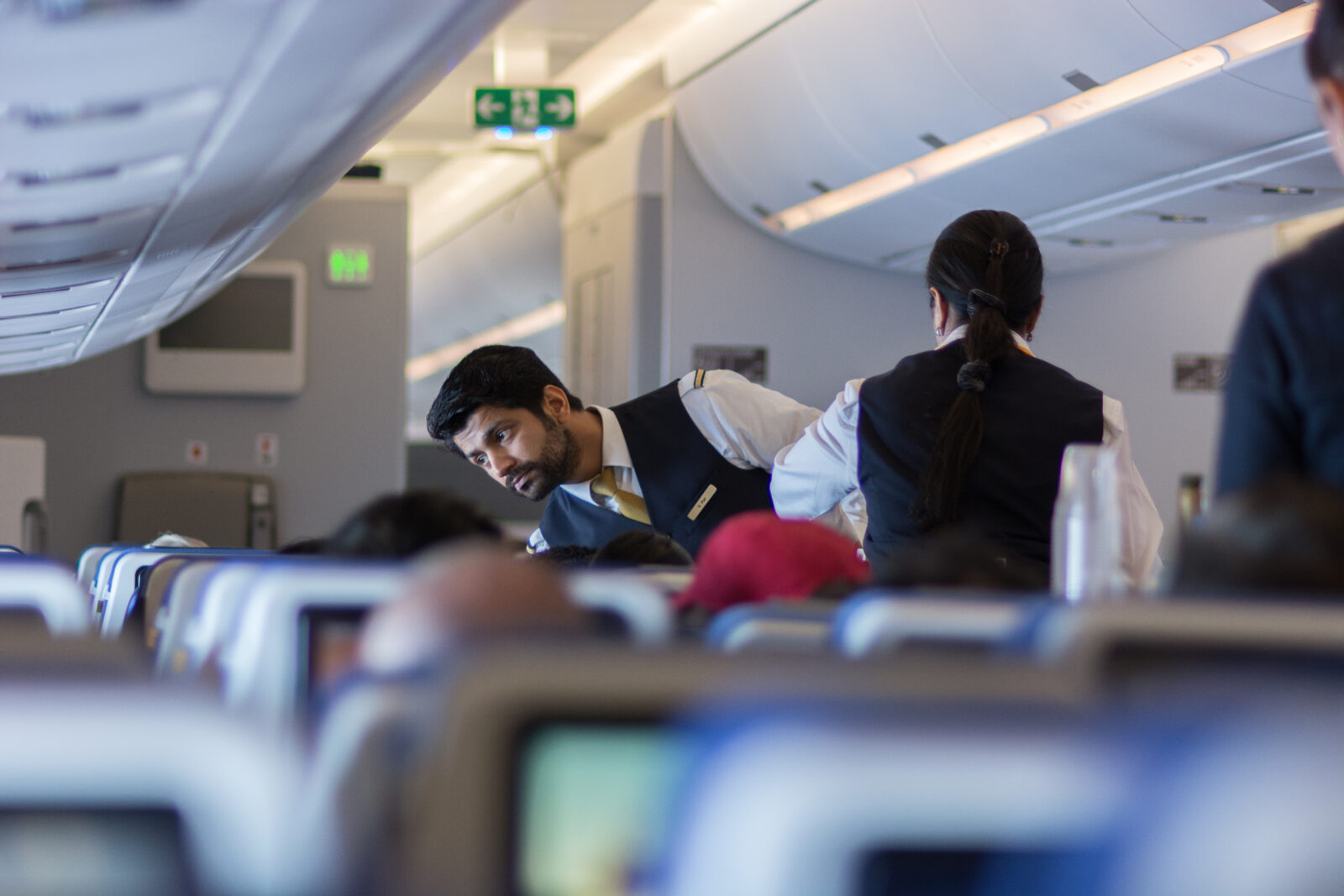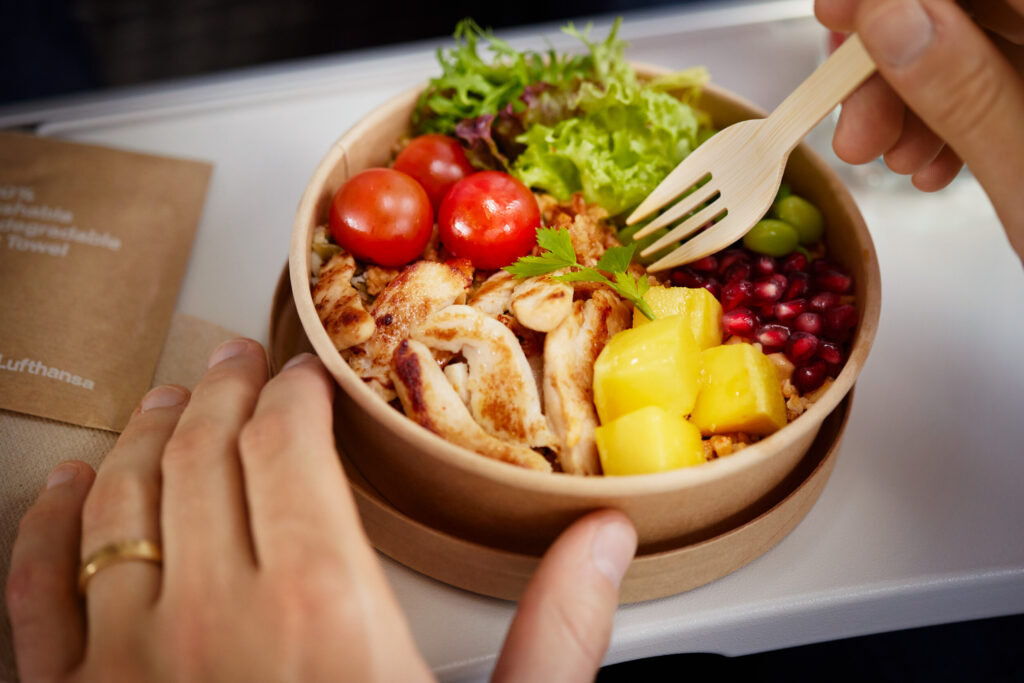
The German flag carrier Lufthansa has revealed exactly how much it saves per passenger by removing free food and drink on short and medium-range flights.
In response to a question from one of the 3,000 shareholders who attended Lufthansa’s annual general meeting last week, the airline was forced to break down the cost savings by only providing a small complimentary bottle of water and an even smaller chocolate square on intra-European flights.

According to the Frankfurt Flyer blog, the shareholder asked how much it had cost Lufthansa to provide its infamous ‘half sandwich’ complimentary catering alongside free drinks, compared to its current ‘buy onboard’ catering concept.
In response, shareholders were told that the old complimentary model cost €0.80 per passenger, whereas the new catering concept costs a mere €0.33 per customer – a cost saving of 47 cents (US $0.51) per passenger.
The cost savings are, of course, only half the story, and Lufthansa also pointed out that, on average, it makes €8.65 per passenger who decides to buy something from the onboard menu.
The airline raked in around €4.9 million in ‘buy onboard’ revenue last year.
Lufthansa decided to abandon a complimentary meal service on short and medium-range flights in 2021. A buy-on-board range called ‘Onboard Delights’ was introduced on flights of one hour or longer with fresh starting at €5.50.
Coffee and tea cost €3, and soft drinks and beer cost €3.50.
In an attempt to reduce waste and increase sales, Lufthansa said on Thursday that it would offer discounts on fresh food on the last flight of the day back into Munich and Frankfurt
Related
Mateusz Maszczynski honed his skills as an international flight attendant at the most prominent airline in the Middle East and has been flying ever since... most recently for a well known European airline. Matt is passionate about the aviation industry and has become an expert in passenger experience and human-centric stories. Always keeping an ear close to the ground, Matt's industry insights, analysis and news coverage is frequently relied upon by some of the biggest names in journalism.







